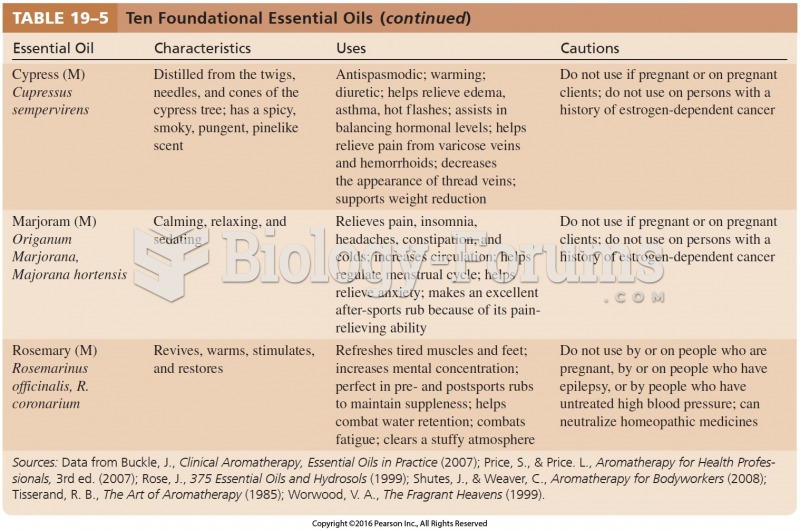|
|
|
The average office desk has 400 times more bacteria on it than a toilet.
Only one in 10 cancer deaths is caused by the primary tumor. The vast majority of cancer mortality is caused by cells breaking away from the main tumor and metastasizing to other parts of the body, such as the brain, bones, or liver.
The heart is located in the center of the chest, with part of it tipped slightly so that it taps against the left side of the chest.
Pubic lice (crabs) are usually spread through sexual contact. You cannot catch them by using a public toilet.
The Food and Drug Administration has approved Risperdal, an adult antipsychotic drug, for the symptomatic treatment of irritability in children and adolescents with autism. The approval is the first for the use of a drug to treat behaviors associated with autism in children. These behaviors are included under the general heading of irritability and include aggression, deliberate self-injury, and temper tantrums.







